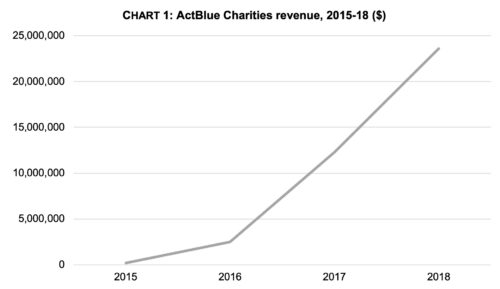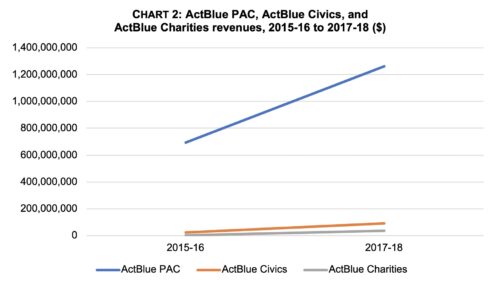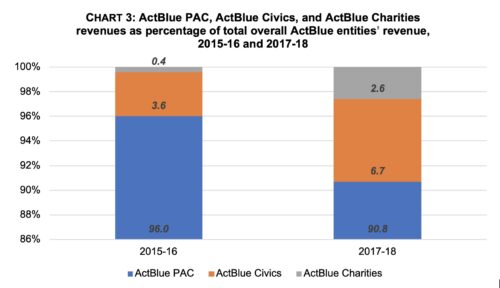ActBlue’s clues.
The ActBlue online-fundraising platform upon which Democrats and liberals so successfully rely for raising increasing amounts of money from a growing number of small-dollar donors has long attracted the interest of some Republicans and conservatives. ActBlue’s facilitation of donations to Black Lives Matter recently has garnered it additional attention.
ActBlue’s entities are used by individual Democratic candidates, Democratic political committees or other political organizations, social-welfare organizations categorized under Internal Revenue Code § 501(c)(4) that can and do work on behalf of Democratic candidates, and public charities under § 501(c)(3) that pursue liberal causes and projects.
They usually set up a “Donate” button on their own websites that, when clicked, takes the clicking user right to ActBlue’s site for quick and easy effectuation of the donation. Or a donor can go right to the ActBlue site and search among the many giving options.
By the relevant legal framework, the giving to candidates and committees is done through the ActBlue political action committee (PAC), as it’s categorized under Internal Revenue Code § 527. The giving to § 501(c)(4) social-welfare groups is done through a separate entity, ActBlue Civics, itself a (c)(4). And the tax-deductible giving to supposedly non-political (c)(3) charities is done through ActBlue Charities, itself a (c)(3).
The main Republican attempt to mimic ActBlue—the much-smaller WinRed—at least currently allows only for direct political fundraising for candidates and committees, not (c)(4) social-welfare groups that work on behalf of Republicans or conservative (c)(3) public charities.
Conservative philanthropy should take particular note of ActBlue Charities, its relative growth and effectiveness, and notice any clues they may or may not provide about the perceived relative value of political versus charitable giving—or the ways in which some may consider them related, perhaps to the point of being almost one and the same.
Impressive numbers
The Act Blue PAC was founded in 2004 to help Democrats finance their campaigns and win elections. ActBlue Civics was formed in 2012 to support permissibly partially political (c)(4) organizations. ActBlue Charities began in 2015 to help (c)(3)s engage in their charitable activity.
ActBlue Charities’ revenue has quickly grown. According to figures reported to the Internal Revenue Service (IRS), it totaled just less than $23.6 million in 2018, the last year for which a publicly reported figure is available, as illustrated in Chart 1 below. Its revenue likely will continue to grow.

According to figures reported by the ActBlue PAC to the Federal Election Commission and by ActBlue Civics and ActBlue Charities to the IRS, while revenue for the PAC have been and remain larger than those for both ActBlue Civics and ActBlue Charities since 2015—by quite an order of magnitude, as shown in Chart 2—ActBlue Civics and ActBlue Charities have begun chipping away at the outright-political component’s much-larger percentage of the three entities’ total overall revenue, as shown in Charts 2 and 3.


Potential interpretations
As for ActBlue Charities’ modest uptick, there might be at least two potential interpretations. First, one could suppose, liberals could increasingly be realizing the importance of ideas as they’re pursued by serious, respectable nonprofit (c)(3)s that earnestly engage in research and public education, including about policy issues.
Or—even if properly discounting for the fact that any of these clues come from a self-selecting, politically oriented sample of ActBlue givers—the slight upward ActBlue Charities trend might be further evidence of something else. Given those givers’ political bearings, it could perhaps help indicate that more and more liberals are willing to risk politicizing more and more of the whole, purportedly apolitical charitable enterprise and its legal framework for the political benefit of one party.


